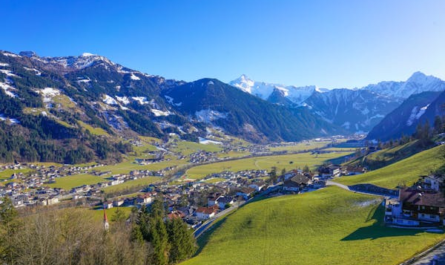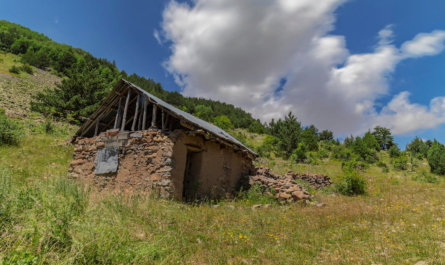Cradled in the heart of the Austrian Alps, Alpbach is a charming village known for its pristine natural beauty, alpine culture, and unique approach to sustainable tourism. Located in the Tyrol region, this picturesque village has become a model for balancing tourism with environmental stewardship, offering a rare example of how small destinations can thrive without sacrificing their ecological integrity. In this article, we explore how Alpbach has achieved the delicate balance between tourism and sustainability, making it a standout example for other tourist destinations to follow.
Preface to Alpbach
Alpbach is a village that captivates visitors with its traditional wooden architecture, flower-filled balconies, and awe-inspiring mountain vistas. Its small size—home to just over 2,000 residents—gives it a quaint and peaceful ambiance, while its reputation for hosting the renowned European Forum Alpbach adds an international flair. Despite its relatively small size, Alpbach has become a symbol of sustainability in tourism, thanks to its forward-thinking policies and community efforts. The village’s commitment to preserving its natural surroundings, cultural heritage, and way of life has made it a role model for responsible tourism.
Sustainability at the Core
At the heart of Alpbach’s tourism philosophy is its dedication to sustainability. The village recognizes that its tourism industry depends on the preservation of its natural landscapes and cultural assets, and as such, sustainability is deeply integrated into its daily operations.
Green Architecture and Urban Planning
One of the standout features of Alpbach’s sustainability efforts is its urban planning and architecture. The village enforces strict building regulations to preserve the traditional wooden architectural style that characterizes the region. New constructions are designed to blend seamlessly with the natural landscape, using sustainable materials and energy-efficient technologies. Solar panels, green roofs, and the use of local timber ensure that new developments do not negatively impact the environment.
Waste Management and Recycling Programs
Alpbach has invested heavily in waste management and recycling programs to minimize its environmental footprint. With an emphasis on reducing waste at the source, the village promotes the use of biodegradable materials, waste separation, and composting. Additionally, local hotels, restaurants, and businesses are encouraged to adopt sustainable practices, including minimizing single-use plastics and focusing on eco-friendly packaging.
Clean Energy Sources
Alpbach has also embraced clean and renewable energy sources to power its community and tourism operations. The village relies on hydroelectric power, wind energy, and solar energy to meet its energy needs. This not only reduces carbon emissions but also helps to preserve the surrounding natural beauty. Many local businesses, including hotels and ski resorts, have made the transition to renewable energy, further reinforcing the village’s commitment to sustainability.
Sustainable Tourism Practices
Alpbach’s approach to tourism is a model for other destinations seeking to reduce the environmental impact of mass tourism. The village has implemented a variety of initiatives to ensure that tourism remains sustainable while benefiting the local community.
Limitations on Mass Tourism
Unlike many popular alpine destinations that suffer from over-tourism, Alpbach takes a measured approach to visitor numbers. By limiting the number of tourists allowed to visit at any given time, the village ensures that the infrastructure does not become overwhelmed, and the natural environment is not degraded. Alpbach actively promotes off-season travel, encouraging visitors to explore the region during less crowded months. This helps spread out the economic benefits of tourism while reducing pressure on local resources during peak seasons.
Support for Local Businesses
Alpbach’s tourism strategy focuses on supporting local businesses and artisans, ensuring that the economic benefits of tourism stay within the community. From locally sourced food products in restaurants to handmade souvenirs in shops, the village emphasizes the importance of promoting the local economy. Visitors are encouraged to support small-scale businesses that prioritize sustainable practices, such as using organic produce and fair trade products.
Eco-Friendly Accommodation
Alpbach is home to a range of eco-friendly accommodations that prioritize sustainability in their operations. Many hotels and lodges in the village boast energy-efficient features, such as low-energy lighting, water-saving fixtures, and sustainable building materials. Several properties have been certified by the Austrian Eco-label for their commitment to reducing their carbon footprint. Additionally, guests are encouraged to use public transportation or car-sharing services instead of driving personal vehicles, further reducing emissions.
Integration with Nature and Outdoor Activities
Alpbach’s commitment to sustainability is not only about reducing environmental impact but also about fostering a deeper connection between visitors and nature. The village offers numerous outdoor activities that encourage visitors to appreciate and respect the natural world.
Hiking and Skiing with a Focus on Conservation
Alpbach is a haven for outdoor enthusiasts, with a network of well-maintained hiking trails that wind through lush meadows, alpine forests, and rugged mountain landscapes. The village is also known for its world-class ski slopes, which attract winter sports enthusiasts from around the globe. However, unlike many other ski resorts, Alpbach takes care to minimize the environmental impact of its skiing operations.
The village has implemented a number of eco-friendly initiatives in its ski resorts, including the use of energy-efficient snowmaking equipment, environmentally friendly lifts, and waste-free ski areas. Additionally, Alpbach promotes responsible skiing practices, such as staying on designated trails to avoid disturbing wildlife habitats.
Wildlife Protection and Conservation Efforts
Alpbach is committed to preserving its rich biodiversity and protecting the habitats of native wildlife species. The village collaborates with local conservation organizations to implement wildlife protection programs, including the preservation of alpine meadows and forests. Visitors are encouraged to observe wildlife from a distance and respect the natural surroundings, ensuring that animals are not disturbed by human activity.
Community Engagement and Education
A key factor in Alpbach’s success in balancing tourism and sustainability is the active involvement of the local community. Residents, business owners, and policymakers are all committed to the village’s sustainable tourism goals, and this sense of shared responsibility is central to Alpbach’s achievements.
Sustainable Tourism Education
Alpbach places a strong emphasis on educating both locals and visitors about sustainable tourism practices. Local schools, businesses, and tourism organizations regularly hold workshops, seminars, and educational events to raise awareness about environmental issues and encourage responsible behavior. Visitors can participate in guided tours that focus on the region’s sustainable practices, including organic farming, renewable energy projects, and conservation efforts.
Collaboration with Environmental Organizations
Alpbach works closely with environmental organizations to implement sustainable initiatives and ensure that the village’s natural resources are protected for future generations. The village regularly participates in regional and national sustainability programs and has established partnerships with local farmers, conservationists, and sustainability experts to enhance its environmental stewardship efforts.
Alpbach’s success in balancing tourism with sustainability serves as a powerful example of how small, remote destinations can thrive while preserving their natural beauty and cultural heritage. Through innovative policies, community engagement, and a deep commitment to environmental conservation, the village has found a way to make tourism a force for good—both economically and environmentally.
As tourism continues to grow worldwide, Alpbach offers valuable lessons for other destinations seeking to create sustainable, responsible, and eco-friendly tourism practices. By focusing on green architecture, waste management, eco-friendly tourism experiences, and community involvement, Alpbach proves that it is possible to maintain the delicate balance between economic growth and environmental preservation.
For those looking for an authentic alpine experience that celebrates both nature and culture, Alpbach is a shining example of how tourism and sustainability can go hand in hand.





